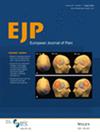Pain in Parkinson's disease is impacted by motor complications, anxiety and sleep disturbances
Abstract
Background
Parkinson's disease (PD) is the second most common neurodegenerative disease. Over two thirds of People with Parkinson's (PwP) live with chronic PD-related pain, but its successful management remains an unmet need. Unrevealing links between pain and other motor and non-motor symptoms (NMS) of PD may accelerate delivery of much needed precision pain medicine approaches for PwP.
Methods
An exploratory, cross-sectional analysis of the prospective, observational, multicentre, international study ‘The Non-motor International Longitudinal, Real-Life Study in PD - NILS’.
Results
In 109 PwP (41.3% women, age 64.29 ± 9.80 years, disease duration 5.50 (2.44–10.89) years, H&Y stage 2 (1–4), levodopa equivalent daily dose 575.00 (315.00–1004.00) mg), strong correlations were noted between the total burden of PD-related pain and the total NMS burden (rs = 0.641) and moderate with disturbances of sleep/fatigue (rs = 0.483), cognitive issues (rs = 0.445), motor complications (rs = 0.421), anxiety (rs = 0.441) and depression (rs = 0.451). In a multivariate linear regression analysis, motor complications (B = 2.063, 95% CI for B 1.152–2.974, p < 0.001), sleep disturbances/fatigue (B = 0.392, 95% CI for B 0.064–0.720, p = 0.020) and anxiety (B = 0.912, 95% CI for B 0.165–1.659, p = 0.017) significantly impacted the overall burden of pain.
Conclusions
In PwP, PD-related pain is significantly impacted by motor complications, anxiety and sleep disturbances. A personalized, tailored approach to management of pain in PwP need to accurately identify and tackle all its interrelated symptoms. Whether successful management of motor complications, anxiety and sleep disturbances may contribute to pain relief in PwP for specified cohorts needs to be a focus of future randomized controlled clinical trials.
Significance statement
This explorative analysis identifies the frequent overlap of chronic pain, motor complications, sleep disturbances and anxiety in Parkinson's disease and could help advance the development of precise and effective pain management strategies tailored to the needs of People with Parkinson's.

 求助内容:
求助内容: 应助结果提醒方式:
应助结果提醒方式:


